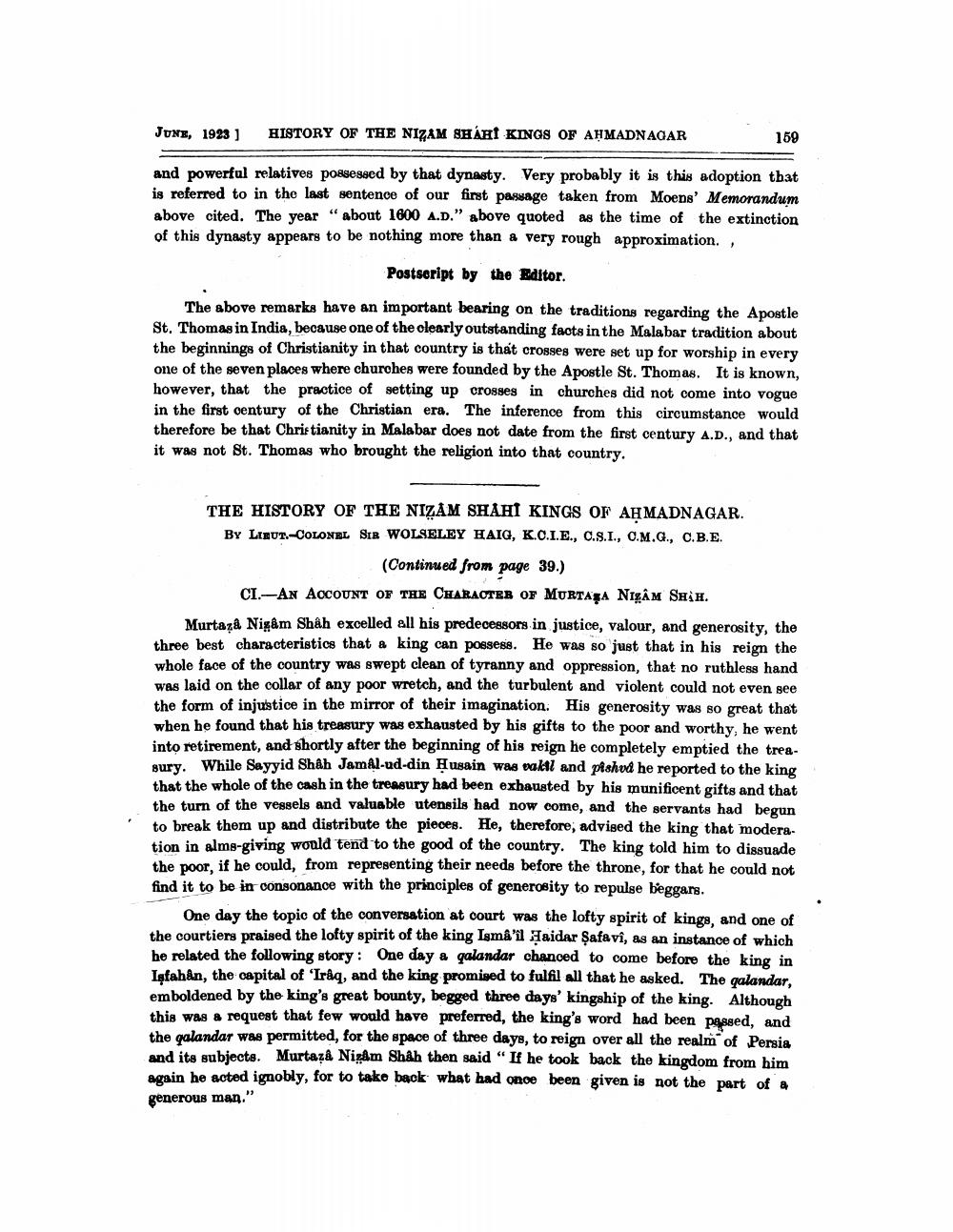________________
JUNE, 1923 ]
HISTORY OF THE NIZAM SHAHI KINGS OF AHMADNAGAR
and powerful relatives possessed by that dynasty. Very probably it is this adoption that is referred to in the last sentence of our first passage taken from Moens' Memorandum above cited. The year "about 1600 A.D." above quoted as the time of the extinction of this dynasty appears to be nothing more than a very rough approximation.,
159
Postscript by the Editor.
The above remarks have an important bearing on the traditions regarding the Apostle St. Thomas in India, because one of the clearly outstanding facts in the Malabar tradition about the beginnings of Christianity in that country is that crosses were set up for worship in every one of the seven places where churches were founded by the Apostle St. Thomas. It is known, however, that the practice of setting up crosses in churches did not come into vogue in the first century of the Christian era. The inference from this circumstance would therefore be that Christianity in Malabar does not date from the first century A.D., and that it was not St. Thomas who brought the religion into that country.
THE HISTORY OF THE NIZAM SHAHI KINGS OF AHMADNAGAR. BY LIEUT-COLONEL SIR WOLSELEY HAIG, K.C.I.E., C.S.I., C.M.G., C.B.E.
(Continued from page 39.)
CI. AN ACCOUNT OF THE CHARACTER OF MURTAZA NIZAM SHAH.
Murtaza Nigam Shah excelled all his predecessors in justice, valour, and generosity, the three best characteristics that a king can possess. He was so just that in his reign the whole face of the country was swept clean of tyranny and oppression, that no ruthless hand was laid on the collar of any poor wretch, and the turbulent and violent could not even see the form of injustice in the mirror of their imagination. His generosity was so great that when he found that his treasury was exhausted by his gifts to the poor and worthy, he went into retirement, and shortly after the beginning of his reign he completely emptied the treasury. While Sayyid Shah Jamal-ud-din Husain was vakil and pished he reported to the king that the whole of the cash in the treasury had been exhausted by his munificent gifts and that the turn of the vessels and valuable utensils had now come, and the servants had begun to break them up and distribute the pieces. He, therefore, advised the king that moderation in alms-giving would tend to the good of the country. The king told him to dissuade the poor, if he could, from representing their needs before the throne, for that he could not find it to be in consonance with the principles of generosity to repulse beggars.
One day the topic of the conversation at court was the lofty spirit of kings, and one of the courtiers praised the lofty spirit of the king Ismâ'il Haidar Şafavî, as an instance of which he related the following story: One day a qalandar chanced to come before the king in Isfahan, the capital of 'Iraq, and the king promised to fulfil all that he asked. The qalandar, emboldened by the king's great bounty, begged three days' kingship of the king. Although this was a request that few would have preferred, the king's word had been passed, and the galandar was permitted, for the space of three days, to reign over all the realm of Persia and its subjects. Murtaza Nizam Shah then said "If he took back the kingdom from him again he acted ignobly, for to take back what had once been given is not the part of a generous man."




